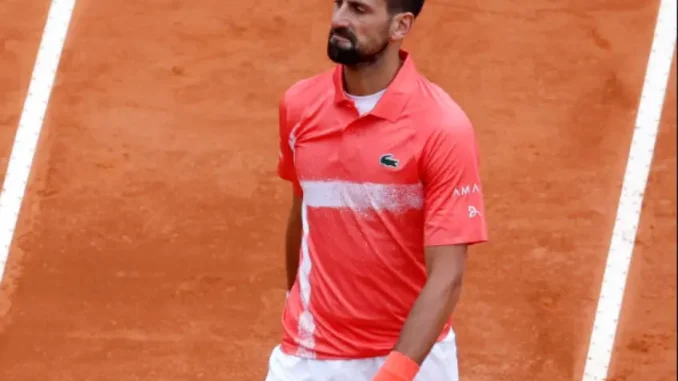
Novak Djokovic, the 24-time Grand Slam champion, has long been a towering figure in tennis, but his recent performances on the clay courts of Monte Carlo and Madrid have raised eyebrows. Patrick Mouratoglou, the renowned coach currently guiding Naomi Osaka, has offered a candid assessment of Djokovic’s surprising early exits, pointing to a lack of motivation as the root cause. As the tennis world looks ahead to the French Open, Mouratoglou’s insights have sparked debate about whether the 37-year-old Serbian star can rediscover his spark on the sport’s grandest stages.
Djokovic’s 2025 clay season began with high hopes but quickly faltered. In Monte Carlo, he suffered a stunning second-round defeat to Alejandro Tabilo, ranked No. 32, losing 6-3, 6-4. The loss marked a continuation of his struggles, following a defeat in the Miami Open final to Jakub Mensik. Madrid offered no reprieve, as Djokovic fell in his opening match to Matteo Arnaldi, 6-3, 6-4, extending his losing streak to three matches. These back-to-back upsets prompted Djokovic to withdraw from the Rome Open, leaving him without a clay-court win as Roland Garros approaches. Mouratoglou, reflecting on these performances, expressed shock at Djokovic’s lackluster showings. “I was very surprised to see Novak play like that in Monte Carlo and then again in Madrid,” he said. “For a guy like him, if he doesn’t feel like playing, if he doesn’t have the motivation, I don’t think he should play because he didn’t even look like he was trying to win.”
Mouratoglou’s critique hinges on Djokovic’s apparent mental and physical disengagement. Known for his relentless drive, Djokovic seemed uncharacteristically flat, making 29 unforced errors against Tabilo and struggling with movement against Arnaldi. “I’m not saying he is not able to play better, he is for sure able to play much better, but I felt like he was not prepared physically,” Mouratoglou noted. He questioned Djokovic’s decision to compete, asking, “The question is ‘Why did he play then?’ I don’t understand. Motivation is a big thing for him, it’s all about it.” Djokovic himself acknowledged the shift in his career trajectory, describing his Madrid loss as part of a “new reality” where deep tournament runs are no longer guaranteed. “I was hoping I can play one more match than I played in Monte Carlo,” he said, admitting, “It’s kind of a new reality for me, I have to say, trying to win a match or two, not really thinking about getting far in the tournament.”
The Serbian’s challenges come at a pivotal moment. At 37, Djokovic is chasing his 100th career title and a record-extending 25th Grand Slam at Roland Garros, where he has won three times. His 2025 season has been uneven, with a 12-7 record and no titles since his Olympic gold in August 2024. Injuries, including a hamstring issue at the Australian Open and an eye infection in Miami, have compounded his struggles. Yet, flashes of brilliance—such as reaching the Miami final—suggest the champion’s fire still burns. Mouratoglou emphasized the importance of match play for Djokovic, warning that skipping tournaments could be risky. “He obviously needs to have one goal to focus on,” he said. “Thinking like, ‘I’m going to a Grand Slam and everything will suddenly be fine,’ that’s a real gamble.”
As Djokovic prepares for Paris, his collaboration with coach Andy Murray, absent in Monte Carlo but set to resume in Madrid, could be key. His brother Marko filled in emotionally during the clay swing, but Djokovic’s mental reset will be crucial. With young stars like Carlos Alcaraz and Jannik Sinner dominating, Djokovic’s ability to harness his legendary resilience will determine whether he can silence doubters and reclaim his clay-court dominance.
Leave a Reply